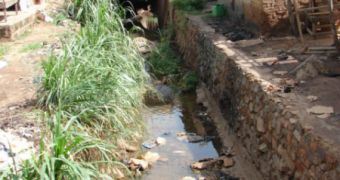Millions of people in Africa do not currently have access to fresh water sources, or even safe-to-drink water sources, for that matter. And, as if this were not enough, they are also at risk of losing the only thing that gives them a drop of water to drink, which is several billions of dollars of international funding to their countries' infrastructure. Aqueducts are a thing of the past in most African nations, after decades of lack of funds and poor management of the existing installations.
The situation still persists, though the United Nations vowed to follow a program aimed squarely at reducing poverty in third-world countries and offering at least half of the current number of people without a source of water access to fresh and clean water. This ambitious plan, called the Millennium Development Goals, is to be implemented by 2015, but now officials at the UN are starting to doubt if the objectives are sustainable, seeing how the deadline is just 6 years away.
"We're hearing encouraging noises from the donor side, saying they're going to maintain funding. Certainly in the short run we may see a dip [in private funding]. The cost of borrowing will go up," African Development Bank representative, Alex Rugamba, expressed his fears.
The Organization for Economic Cooperation and Development (OECD) also expressed its support for these countries, but said that "If present policies prevail, by 2030 another billion people will live in areas without enough water." Though it doesn't plan to withdraw its support to African nations, the organization says that the current economic crisis could have disastrous consequences on the infrastructure of the poorest continent on Earth, which needs thorough revisions and improvements.
"This is a pioneering process for utilities in Africa. They need to address the financing gap and do better with what they have already," concluded Lorenzo Bertolini, of the Public-Private Infrastructure Advisory Facility, an institution that benefits from the support of the World Bank, in an interview to Reuters.

 14 DAY TRIAL //
14 DAY TRIAL //